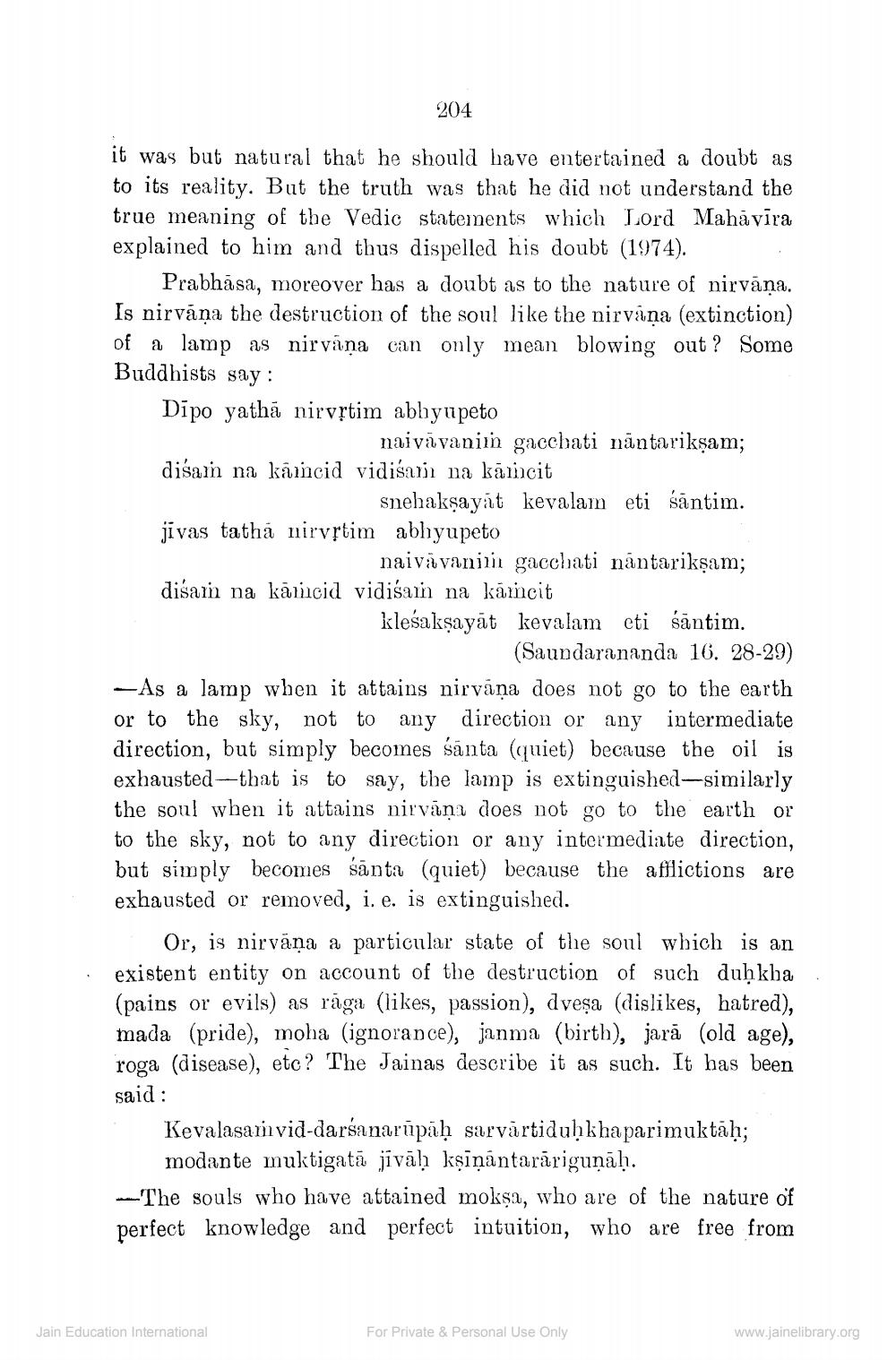________________
204
it was but natural that he should have entertained a doubt as to its reality. But the truth was that he did not understand the true meaning of the Vedic statements which Lord Mahā vīra explained to him and thus dispelled his doubt (1974)
Prabhāsa, moreover has a doubt as to the nature of nirvāņa. Is nirvana the destruction of the soul like the nirvana (extinction) of a lamp as nirvāṇa can only mean blowing out? Some Buddhists say: Dīpo yathā nirvștim abhyupeto
naivăvaniin gacchati nāntarikşam; disan na karcid vidišarı na kārcit
snehakşayat kevalam eti sāntim. jivas tatha nirvrtim abhyupeto
naivävanin gacchati nantarikşam; disam na kālicid vidisain na kámcit
klešakṣayāt kevalam eti śāntim.
(Saundarananda 16. 28-29) -As a lamp when it attains nirvana does not go to the earth or to the sky, not to any direction or any intermediate direction, but simply becomes santa (quiet) because the oil is exhausted--that is to say, the lamp is extinguished-similarly the soul when it attains nirvānı does not go to the earth or to the sky, not to any direction or any intermediate direction, but simply becomes śānta (quiet) because the afflictions are exhausted or removed, i. e. is extinguished.
Or, is nirvaņa a particular state of the soul which is an existent entity on account of the destruction of such duḥkha (pains or evils) as rāga (likes, passion), dveşa (dislikes, hatred), mada (pride), moha (ignorance), janma (birth), jară (old age), roga (disease), etc? The Jainas describe it as such. It has been said :
Kevalasari vid-darśanarūpāḥ sarvartiduhkhaparimuktāḥ;
modante muktigatā jīvāḥ kṣīņāntarāriguņā”. The souls who have attained moksa, who are of the nature of perfect knowledge and perfect intuition, who are free from
Jain Education International
For Private & Personal Use Only
www.jainelibrary.org




